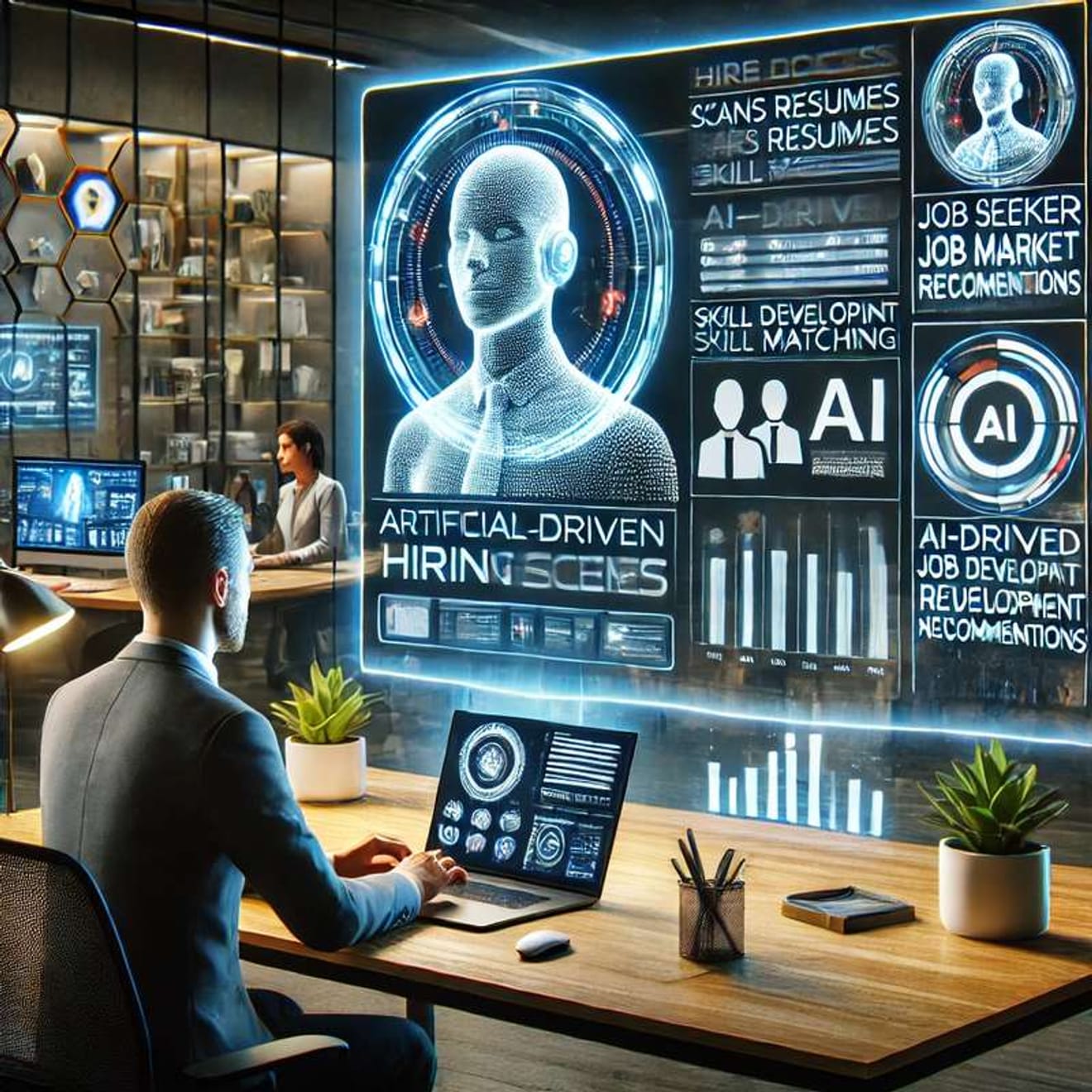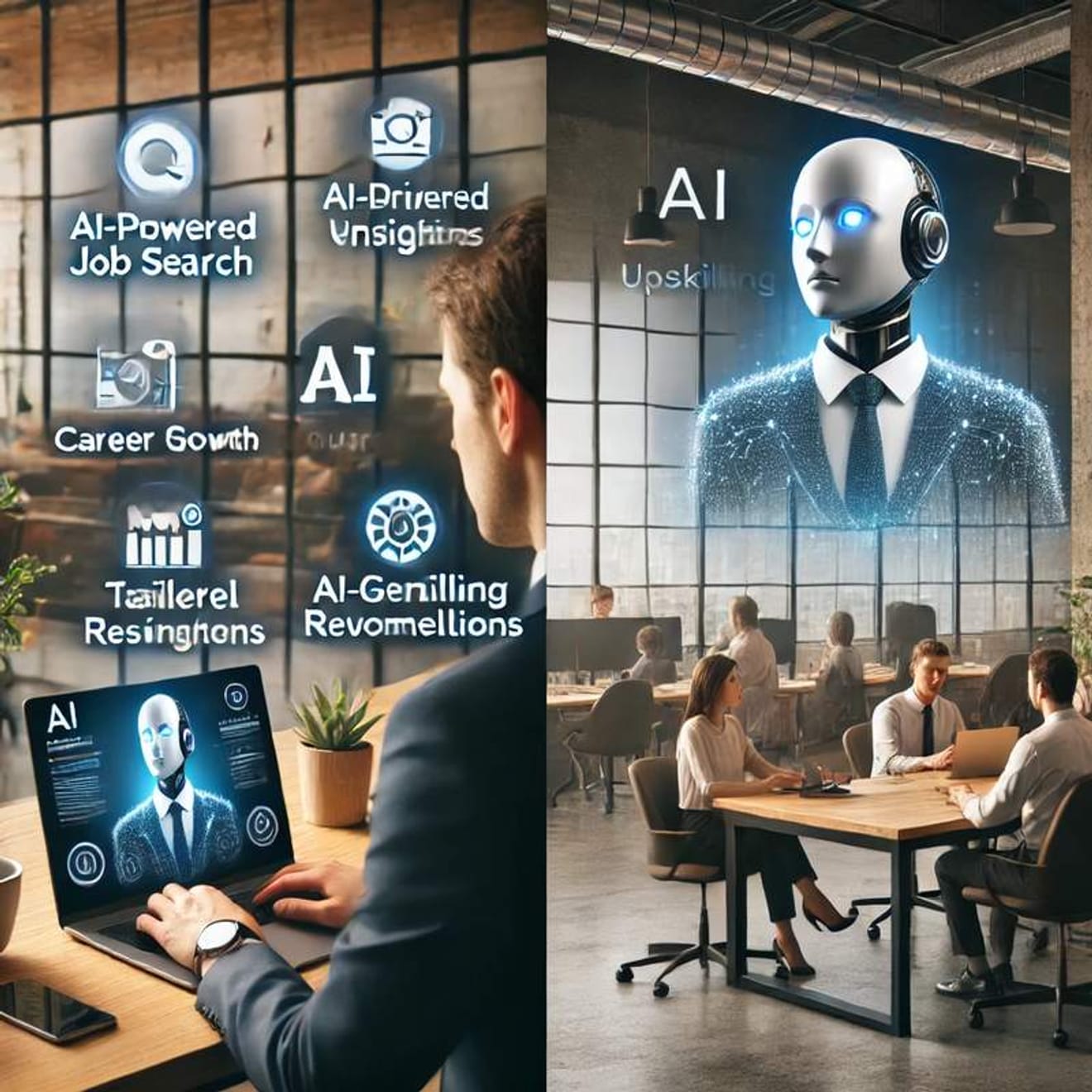AI (Artificial Intelligence) is revolutionizing various industries and the job market beyond simple automation. AI not only automates repetitive tasks but also supports complex data analysis and decision-making that humans cannot perform, creating new job opportunities. However, the advancement of AI is also causing existing jobs to disappear or change, necessitating preparation for this shift.
This article analyzes the impact of AI on the job market, changing job categories, and promising AI-related jobs in the future, and introduces methods to maintain competitiveness in the age of AI.

1. Jobs Replaced by AI vs. Jobs Created by AI
While some jobs are declining due to the advancement of AI, new jobs utilizing AI technology are increasing. AI's automation technology reduces simple, repetitive tasks, while jobs requiring creative and complex problem-solving capabilities are becoming even more important.
1) Jobs Likely to be Replaced by AI
• Data entry and processing tasks → AI algorithms can automatically organize and analyze data.
• Customer service representatives → AI chatbots and virtual assistants automate many aspects.
• Manufacturing production line workers → Smart robots perform tasks through automated factory systems.
• Accounting and financial analysis → AI-based accounting software creates automated reports.
Example: As global companies introduce AI chatbots, the need for traditional customer service representatives is decreasing. However, the role of representatives in solving complex customer problems remains important.
2) New Jobs Created by AI
• AI engineers and machine learning specialists → Develop and optimize AI systems.
• Data scientists → Design and process data for AI analysis.
• AI ethics experts → Establish policies to ensure ethical operation of AI systems.
• Robotics engineers → Design and maintain AI-based automated robots.
• AI trainers → Help AI achieve more accurate results through data training.
Example: Global companies are creating positions like "AI ethics experts" and "AI trainers" to develop AI and use it ethically.
➡ Additional Tip: Choosing a job that develops alongside AI can build a stable career for the next 10 years.
2. Promising Jobs and Technical Skills in the AI Age
The advancement of AI has made certain jobs more important, and the ability to understand and utilize AI technology has become essential. The following job categories are expected to grow rapidly in the next 10 years.
1) Promising Job Categories in the AI Age
• AI development and machine learning engineers → Develop and optimize AI algorithms.
• Cybersecurity experts → AI is used to detect and block security threats.
• AI-based medical data analysts → AI analyzes medical data to support diagnosis.
• AI marketing specialists → Optimize digital marketing using AI.
• Smart factory operation specialists → Manage AI automation systems.
Example: Global IT companies are expanding recruitment in AI development and data analysis positions, and salary levels for AI-related jobs are rapidly increasing.
2) Essential Technical Skills in the AI Age
The following technologies and capabilities are needed to maintain competitiveness in the AI age.
✅ Programming and data analysis (Python, R, SQL, etc.)
✅ Basic concepts of AI and machine learning (TensorFlow, PyTorch proficiency)
✅ Digital marketing & SEO strategies (using AI-based marketing automation)
✅ Cybersecurity and network security knowledge
✅ Creative problem-solving skills and AI collaboration skills
➡ Additional Tip: It is important to continuously learn technology by using AI-related online courses (Udemy, Coursera, edX, etc.).

3. The Impact of AI on the Future Job Market
As AI spreads, the paradigm of the job market is changing. This has a significant impact on companies' workforce management methods and job structures.
1) Increased AI Adoption by Companies
• As AI leads to work automation, companies can maintain high productivity with fewer employees.
• Companies increasingly prefer data analysis and decision-making using AI.
Example: Global consulting firm PwC used AI-based automated analysis tools to improve report writing speed by 50%.
2) New Job Skills Required by AI
• Existing jobs are also likely to be modified by incorporating AI technology.
• The ability to collaborate with AI and problem-solving skills are becoming more important than simple repetitive tasks.
Example: Marketing professionals now use AI-based advertising optimization systems to run more sophisticated campaigns.
➡ Additional Tip: It is important to develop "human-centric skills" (creativity, critical thinking, emotional intelligence, etc.) that AI cannot automate.
AI is changing the job market, replacing some jobs through automation while creating new job opportunities. The future will require the ability and skills to collaborate with AI.
<How to Prepare for the AI Age>
1. Learn AI-related technologies and develop data analysis skills.
2. Consider high-growth fields such as cybersecurity, AI marketing, and machine learning.
3. Strengthen human-centric capabilities that AI cannot perform (creativity, collaboration skills, etc.).
AI will not take away jobs, but will be a tool that creates new opportunities. By proactively utilizing and preparing for AI, we can create a more competitive future.

<Next Steps>
• Take AI-related online courses to learn new technologies.
• Expand your network in job fields that utilize AI.
• Share this article to raise awareness of the changing job market due to AI!
What are your thoughts on the impact of AI on the job market? Share your opinions in the comments!
Comments0